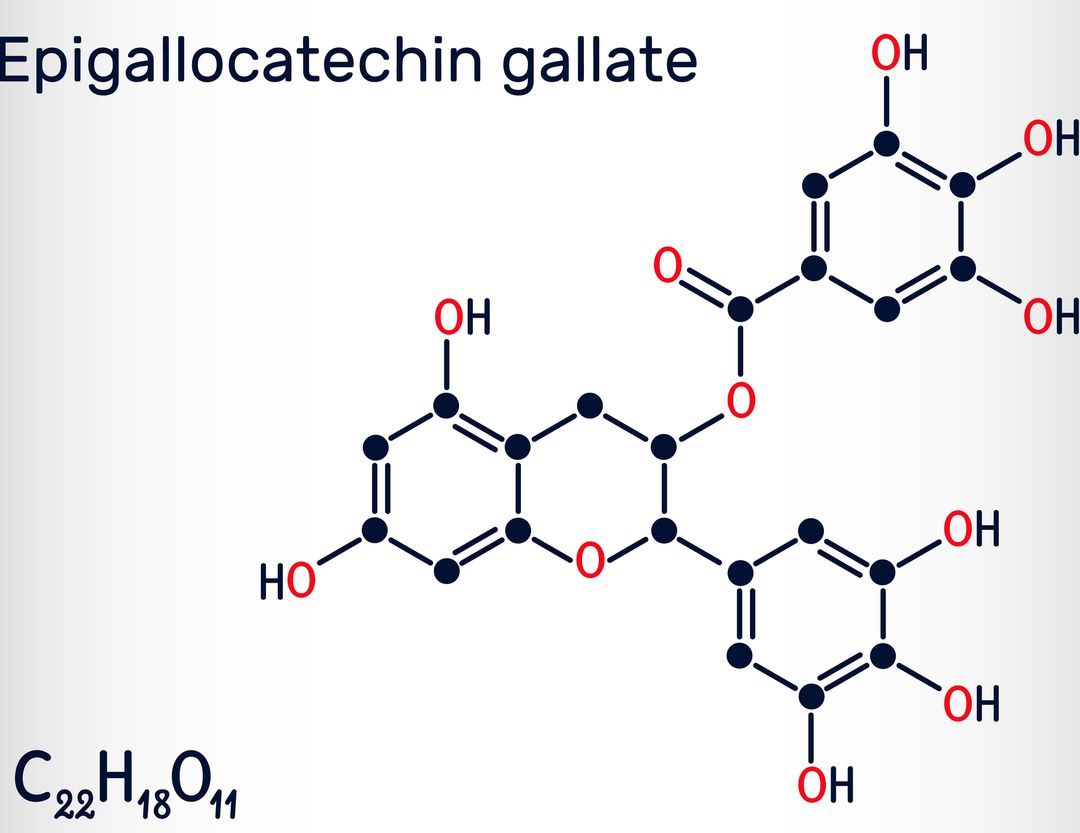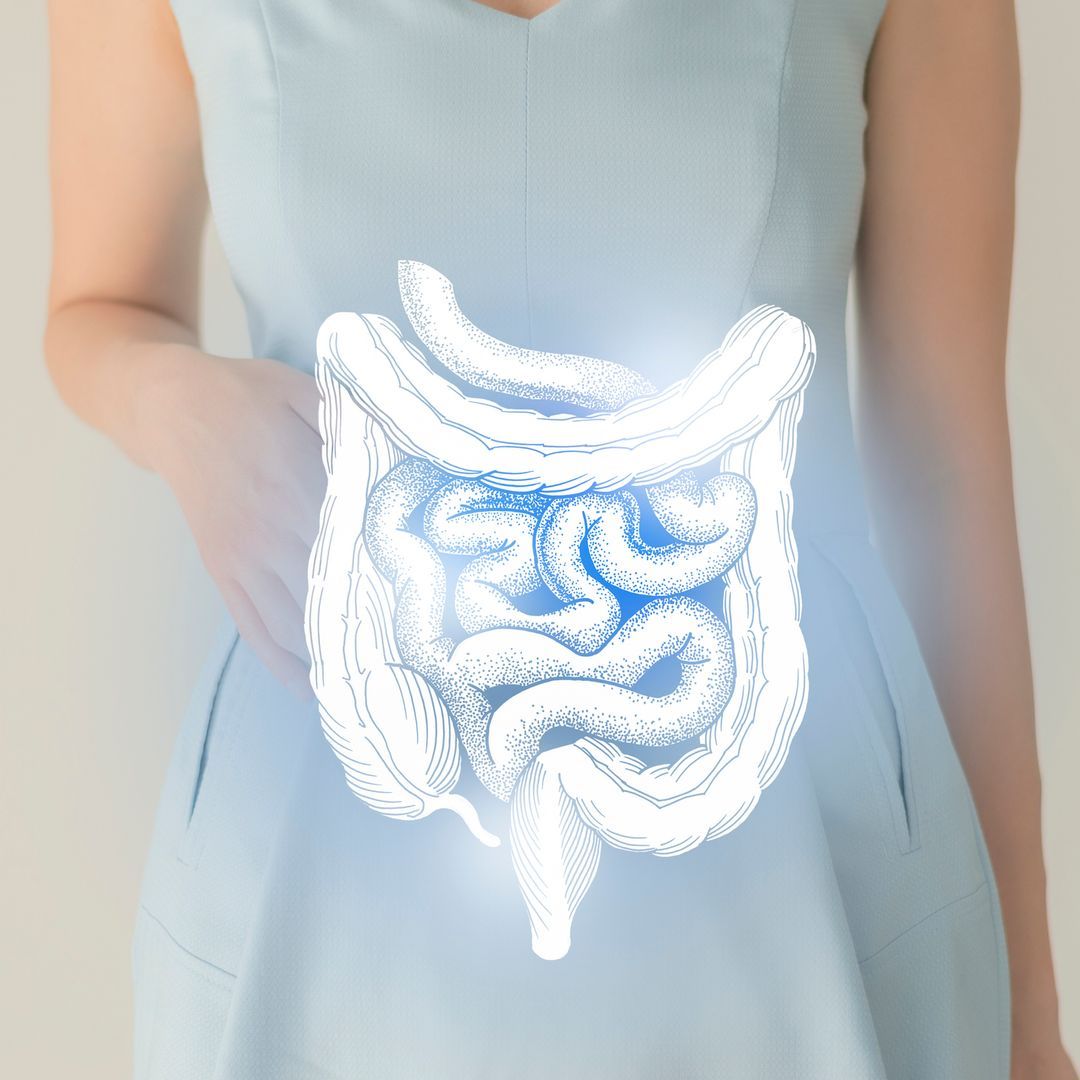More Than Tea: The Anti-Ageing Benefits of EGCG
For hundreds of years, we have heard about the potential benefits of drinking green tea. Green tea is made from a plant called Camellia Sinensis. The leaves and leaf buds are dried to make a variety of teas, including oolong and black teas.
Summary
- Epigallocatechin gallate (EGCG) is a plant-based compound called catechin. It is the most abundant catechin found in green and black tea leaves, but these teas also contain other catechins, including epicatechin, gallocatechin and gallate derivatives. EGCG can also be found in other foods, including nuts and fruits.
- The primary focus of many EGCG studies is its potential role in skin anti-ageing. It is understood to be rich and nourishing, with some of the most promising properties of EGCG being antioxidant, anti-inflammatory and anti-androgenic.
- EGCG has been studied for centuries, but due to it being prone to degrading easily when in the presence of oxygen and many people struggling to absorb the catechin effectively as it travels through the digestive tract - study results have varied hugely. The problem of absorption has made developing exact doses and running accurate trials very difficult.
- There have been reports of side effects when taking EGCG supplements. These adverse effects have included dizziness, anaemia and some other nasty effects. However, some experts have stated that they believe the negative side effects could be due to supplements being exposed to toxic contamination, not the actual EGCG itself.
Introduction
For hundreds of years, we have heard about the potential benefits of drinking green tea. Green tea is made from a plant called Camellia Sinensis. The leaves and leaf buds are dried to make a variety of teas, including oolong and black teas.
What makes it so unique is the green tea EGCG content. This compound shows some positive signs of supporting healthy ageing and warding off some age-related issues many people experience. It is a powerful antioxidant, anti-inflammatory and anti-androgenic, but due to the digestive journey of green tea, it is hard to determine just how much tea is needed to benefit from the potential benefits.
There is still a lot to be learnt about this ancient tea, but researchers are continuing to learn more about green tea polyphenols. Below is an introduction to EGCG, the potential anti-ageing benefits it could provide, and the challenges researchers face when studying this powerful compound.
What is EGCG?

Epigallocatechin gallate (more commonly known as EGCG) is a type of plant-based compound called catechin. It is the most abundant catechin found in green and black tea leaves – although tea leaves contain other catechins like epicatechin, gallocatechin and gallate derivatives.
EGCG has become well known for its potent antioxidants that have the potential to protect against cellular damage caused by free radicals. Free radicals are highly reactive particles formed in the body that can damage cells when there are too many of them. It has been discovered consuming or applying ingredients high in antioxidants like catechins could help reduce free radical damage.
There has also been some research that indicates catechins, like EGCG, may reduce inflammation and help prevent some age-related conditions. However, studies are ongoing, and many have been conducted on animals, so the confirmed effects on humans are limited.
Green tea is probably most well known for its high volume of EGCG, but the catechin can also be found in other foods, which include:
- Nuts – Hazelnuts, pistachios and pecans
- Fruits – Avocados, apples, strawberries, kiwis, blackberries and pears
- Other teas – Black teas, oolong and white
Does EGCG Have Anti-Ageing Benefits?

Regarding the potential benefits of EGCG, the primary focus of many studies is its role in skin anti-ageing. It is known to be rich and nourishing, with some of the most promising properties of EGCG being as follows:
- Antioxidant – Fast becoming a popular skincare ingredient, EGCG works as an antioxidant which can help reduce blemishes, dullness and the overall appearance of skin ageing.
- Anti-inflammatory – Many people suffer from redness and inflamed skin as they age. EGCG’s anti-inflammatory properties could be an ideal natural solution for combatting these common issues.
- Anti-androgenic – More often than not, breakouts are associated with puberty, but hormone changes also occur during menopause and can be an issue in the adult years. EGCG has the potential to act as an anti-androgenic which means it could lower the lipids levels in the skin and decrease excess sebum, preventing pores from clogging.
What The Research Says About EGCG

Although EGCG has been studied for a long time, the studies' results have varied. Some experts, such as those from the Peking University School of Stomatology in China, found that EGCG degrades easily when in the presence of oxygen. In addition, many people are unable to absorb the catechin effectively as it travels through the digestive tract.
The reason EGCG is not absorbed well is not entirely understood. Still, it could be related to the fact that a lot of the EGCG can bypass the small intestine too quickly, resulting in the bacteria in the large intestine degrading it. In addition, the issue of absorption has made developing specific doses and running accurate trials incredibly challenging.
An estimated single cup of 250ml brewed green tea will contain around 50-100mg of EGCG. However, when used in scientific studies, the dosage is often much higher, and the exact amounts are often inconsistent (not ideal for accurate assessment results).
One group of researchers from the US suggested a safe daily intake of EGCG is 338mg when ingested in a solid supplement form. However, it should be pointed out that a daily intake of 800mg or above of EGCG could increase the blood levels of transaminases.
There have been a few reported side effects when consuming EGCG supplements, including dizziness, anaemia, and other adverse reports. On the other hand, some experts have pointed out that it could be due to supplements being exposed to toxic contamination and not the EGCG itself, causing the negative side effects.
Closing Thoughts
EGCG is showing massive potential in being a powerful compound that could support some anti-ageing benefits. If you are searching for a way to improve your lifestyle and reduce the chances of premature ageing, checking your glycans and enjoying a relaxing cup of green tea could be the way to go. Discovering your biological age through a GlycanAge testing kit can allow you to make the necessary changes to ensure you make healthy anti-ageing decisions.
Frequently Asked Questions (FAQs)
Does green tea reverse ageing?
No supplement or food can reverse ageing – it is an inevitable part of life. However, it is possible to make some lifestyle adjustments to help slow down signs of premature ageing and drinking green tea may be one of them. Green tea is packed full of an antioxidant called EGCG (epigallocatechin gallate), which is helpful in fighting against DNA damage caused by UV rays.
What does EGCG do for your skin?
Some research has found that EGCG could positively affect skin hydration, moisture retention, and wrinkle formation. In addition, it may also reduce sebum excretions in the skin, which can help slow down or prevent the development of acne.
How effective is EGCG?
There is a lot of ongoing research into the effectiveness of EGCG. However, preliminary studies show it is a powerful antioxidant and has the potential to reduce stress and inflammation.
Does drinking green tea prevent wrinkles?
One of the best ways to prevent wrinkles and photoaging is to reduce UV exposure, but there is some hope that green tea could also help reduce skin damage and promote anti-wrinkling processes. The research has been primarily conducted on mice, but the studies suggest a possibility of the practical use of green tea as an anti-wrinkle agent for humans.
How do I choose an EGCG?
If you are searching for the tea with the highest amount of EGCG, green tea generally comes at the top. However, there are also ECGC supplements offering a large dose in a single capsule. Some EGCG products will list the amount available in each serving or dose.
References
https://www.ncbi.nlm.nih.gov/pmc/articles/PMC6225204/
https://efsa.onlinelibrary.wiley.com/doi/epdf/10.2903/j.efsa.2018.5239
https://www.sciencedirect.com/science/article/pii/S0273230018300928
https://link.springer.com/article/10.1007/s00784-019-03096-4
https://glycanage.com/price-and-plans/
https://www.ncbi.nlm.nih.gov/pmc/articles/PMC5796122/
https://www.ncbi.nlm.nih.gov/pmc/articles/PMC4289929/
YouTube Video Link: https://www.youtube.com/watch?v=0BnDe56E68c |


